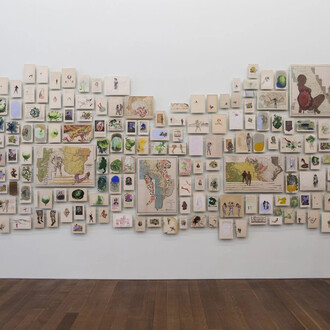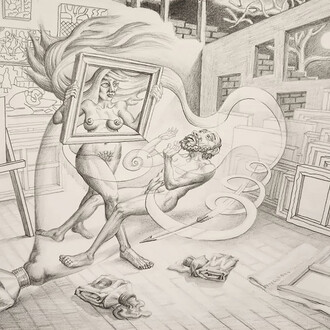Exhibition showcases the famous works while acknowledging Audubon’s complicated legacy.
One of the world’s rarest books is now available for public viewing at the Field Museum. Audubon’s Birds of America features John James Audubon’s scientific artwork, the prints collectively known as Birds of America. Visitors can admire these detailed prints of birds in their natural habitats on 39” by 26” paper.
The exhibition opened Jan. 19 in the T. Kimball and Nancy N. Brooker Gallery on the Museum’s second floor. The show doesn’t only highlight the works of the famous naturalist; it also sheds light on Audubon’s complicated legacy.
“We would like visitors to simultaneously appreciate the value of Audubon’s work and what it’s done for future bird study and science while also acknowledging that he is one of a lot of influential figures who had a very problematic past, and it’s important to pay attention to those aspects of a person at the same time”, said the exhibition’s developer, Monisa Ahmed.
As ornithological societies like the Chicago Bird Alliance change their names to shed ties to his controversial past, the exhibition highlights the legacy of Audubon’s works and contributions to the arts and sciences, alongside findings from recent reassessments of the naturalist.
The four volumes of watercolor paintings are not only a collection of art; these detailed paintings are examples of scientific advancement in natural history. As photography was in its infancy, Audubon’s work provided naturalists and ornithologists of the early 19th century with the opportunity to view lifelike images of birds across North America.
“It’s nice to be able to see them digitally and on a screen, but it’s so different when it’s in person”, said Ahmed. “It’s so vivid and a lot more interesting to be able to see that. From a scientific perspective, it’s still lauded as one of the most important parts of ornithological study to have come out”.
Only 120 complete sets of Audubon’s 435 engravings exist today, consisting of four volumes. In the exhibition, the book displays one volume at a given time. Every third Thursday of the month, the museum will turn these delicate pages, unveiling a new print to the public.
In addition to the book, visitors can catch a glimpse of contents from the book’s other pages as high-resolution, floor-to-ceiling images and through a video projection that explores the unique qualities of the Field Museum’s set of Birds of America.
















